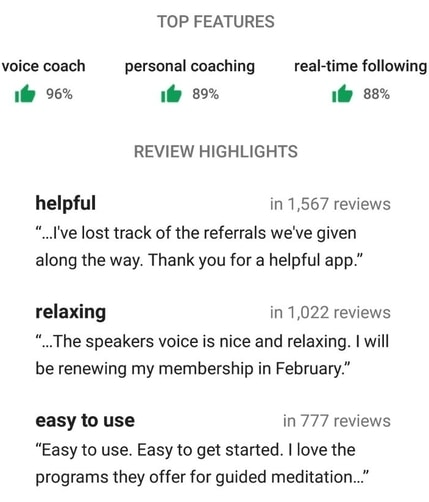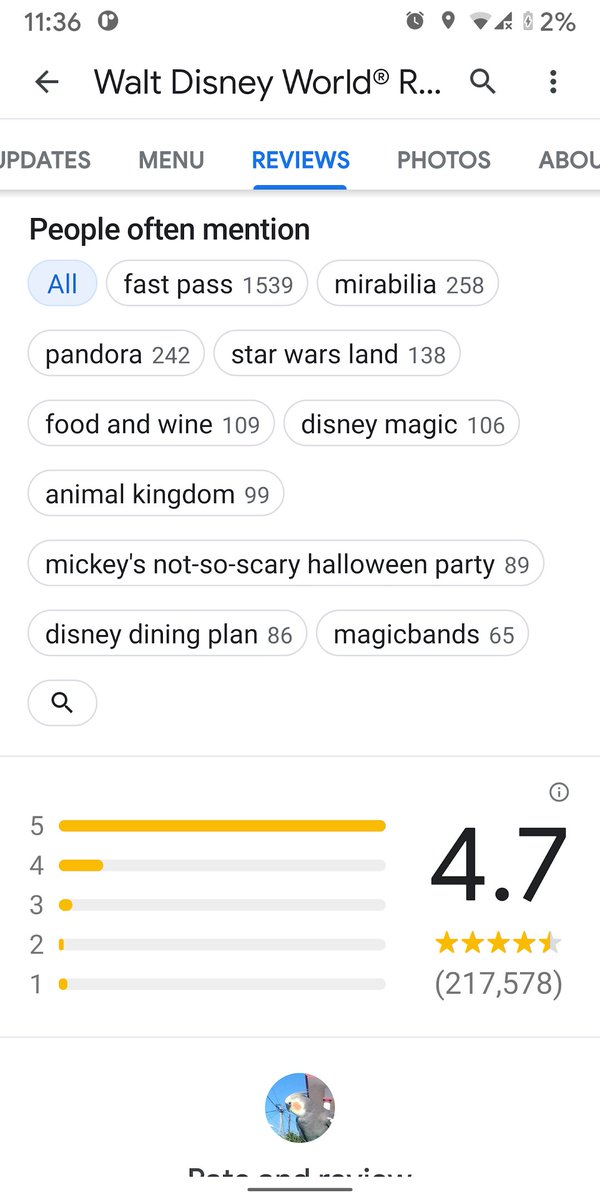I have an idea—a vision—that has been brewing for months, that I finally can put into words:
The future medium of all knowledge is graph-based, and these new virtual maps of meaning will enable a Great Information Condensation.
Here are the components of this revolution https://abs.twimg.com/emoji/v2/... draggable="false" alt="👇🏻" title="Rückhand Zeigefinger nach unten (heller Hautton)" aria-label="Emoji: Rückhand Zeigefinger nach unten (heller Hautton)">
https://abs.twimg.com/emoji/v2/... draggable="false" alt="👇🏻" title="Rückhand Zeigefinger nach unten (heller Hautton)" aria-label="Emoji: Rückhand Zeigefinger nach unten (heller Hautton)">
The future medium of all knowledge is graph-based, and these new virtual maps of meaning will enable a Great Information Condensation.
Here are the components of this revolution
### 1. GPT-3 and other AI-based tools, which can:
𝘇𝗼𝗼𝗺 𝗶𝗻 𝗮𝗻𝗱 𝘇𝗼𝗼𝗺 𝗼𝘂𝘁 𝗼𝗳 𝘁𝗵𝗲 𝗴𝗿𝗮𝗽𝗵 𝘁𝗼 𝗮 𝗰𝗼𝗺𝗳𝗼𝗿𝘁𝗮𝗯𝗹𝗲 𝗹𝗲𝘃𝗲𝗹 𝗼𝗳 𝗰𝗼𝗺𝗽𝗹𝗲𝘅𝗶𝘁𝘆, 𝘄𝗵𝗲𝗿𝗲 𝘁𝗵𝗶𝗻𝗴𝘀 𝗮𝗿𝗲 𝗽𝘂𝘁 𝗶𝗻 𝗮 𝗹𝗮𝗻𝗴𝘂𝗮𝗴𝗲 𝘆𝗼𝘂 𝗰𝗮𝗻 𝘂𝗻𝗱𝗲𝗿𝘀𝘁𝗮𝗻𝗱.
𝘇𝗼𝗼𝗺 𝗶𝗻 𝗮𝗻𝗱 𝘇𝗼𝗼𝗺 𝗼𝘂𝘁 𝗼𝗳 𝘁𝗵𝗲 𝗴𝗿𝗮𝗽𝗵 𝘁𝗼 𝗮 𝗰𝗼𝗺𝗳𝗼𝗿𝘁𝗮𝗯𝗹𝗲 𝗹𝗲𝘃𝗲𝗹 𝗼𝗳 𝗰𝗼𝗺𝗽𝗹𝗲𝘅𝗶𝘁𝘆, 𝘄𝗵𝗲𝗿𝗲 𝘁𝗵𝗶𝗻𝗴𝘀 𝗮𝗿𝗲 𝗽𝘂𝘁 𝗶𝗻 𝗮 𝗹𝗮𝗻𝗴𝘂𝗮𝗴𝗲 𝘆𝗼𝘂 𝗰𝗮𝗻 𝘂𝗻𝗱𝗲𝗿𝘀𝘁𝗮𝗻𝗱.
This is important because when a material (say, a programming tutorial) is too shallow, it can seem overly verbose ("just get to the point already! Which part do I copy-paste?!!"); but when it assumes you know too much, you have to look up every other word— the connection ...
...between the string of words is severed, thus the meaning is lost (on you).
It will be able to not only ELI5, but also ELI50, because it& #39;ll understand what you know and don& #39;t know (explained below)....
It will be able to not only ELI5, but also ELI50, because it& #39;ll understand what you know and don& #39;t know (explained below)....
GPT-3 can forget (selected) words so as to have a word with you: https://twitter.com/DavidSHolz/status/1320966840710025217
...">https://twitter.com/DavidSHol...
...">https://twitter.com/DavidSHol...
𝗯) 𝗜𝘁 𝗰𝗮𝗻 𝗯𝗹𝗲𝗻𝗱 𝗮 𝗺𝗶𝗹𝗹𝗶𝗼𝗻 𝘃𝗼𝗶𝗰𝗲𝘀 𝘁𝗼 𝗰𝗿𝗲𝗮𝘁𝗲 𝗲𝗽𝗶𝘀𝘁𝗲𝗺𝗼𝗹𝗼𝗴𝗶𝗰𝗮𝗹 𝗵𝗮𝗿𝗺𝗼𝗻𝘆.
In code, collaborative improvement occurs through pull-requests, where a single source of information (the source code) is edited at various parts, ...
In code, collaborative improvement occurs through pull-requests, where a single source of information (the source code) is edited at various parts, ...
changing one line, one word, one character at a time. The English equivalent would be @Wikipedia, but as (edit) history has demonstrated, this is not efficient. Improving the written word could be done much more efficiently, by getting a maximum of people to interpret a subject..
/give an answer which an AI then summarizes. related: @knowtheflipside, @GooglePlay & @GoogleMaps reviews (also see 5.)
𝗰) 𝗰𝘂𝘁 𝗼𝘂𝘁 𝘁𝗵𝗲 𝗳𝗹𝘂𝗳𝗳 𝗳𝗿𝗼𝗺 𝗺𝗼𝘀𝘁 𝗰𝗼𝗻𝘁𝗲𝗻𝘁.
For instance, it could cut out anecdotal fluff in a business book, or summarize long-form content like a Youtube lecture (both through the text transcript and video content analysis)
For instance, it could cut out anecdotal fluff in a business book, or summarize long-form content like a Youtube lecture (both through the text transcript and video content analysis)
d) 𝗽𝗲𝗿𝘀𝗼𝗻𝗮𝗹𝗶𝘇𝗲 𝗶𝗻𝗳𝗼𝗿𝗺𝗮𝘁𝗶𝗼𝗻 𝗱𝗲𝗹𝗶𝘃𝗲𝗿𝘆,i.e. crafting an entertaining story/medium that works best for the way your mind works, 𝗼𝗽𝘁𝗶𝗺𝗶𝘇𝗲𝗱 𝗳𝗼𝗿 𝗯𝗼𝘁𝗵 *𝘂𝗻𝗱𝗲𝗿𝘀𝘁𝗮𝗻𝗱𝗶𝗻𝗴* 𝗮𝗻𝗱 *𝗿𝗲𝗺𝗲𝗺𝗯𝗲𝗿𝗶𝗻𝗴*. How? ...
...Using your data about your tastes, and methodologies like the Big 5 and Jungian/cognitive functions. One rough e.g. would be @LearnFromAny1 by @mckaywrigley!
### 2. tools like Roam which allow us to build explicit knowledge graphs.
@RoamResearch allows building modular second brains, reusable chunks of information, and so much more.
Much has been said about it, but using it is the easiest way to understand its significance.
@RoamResearch allows building modular second brains, reusable chunks of information, and so much more.
Much has been said about it, but using it is the easiest way to understand its significance.
### 3. social networks that connect knowledge graphs.
### 4. " graphical" and sensible search engines that are capable of understanding the difference between convergent and divergent queries (as explained here), and that can use dual-authority ranking (explained below).
### 4. " graphical" and sensible search engines that are capable of understanding the difference between convergent and divergent queries (as explained here), and that can use dual-authority ranking (explained below).
These two items could easily be baked into the same product. We are slowly seeing 3. take form with @RoamLibrary, and @ec_anderson even made a graph of graphs: https://twitter.com/ec_anderson/status/1307733521666990080?s=20.">https://twitter.com/ec_anders...
We also have Roam Portal by @DharamKapila as an up and coming Roam search engine, but this isn& #39;t really what I& #39;m thinking of when I mention "graphical", that is more for stats really(imo).
### 5. a social platform that simultaneously 𝗯𝘂𝗶𝗹𝗱𝘀 "𝘁𝗮𝘀𝘁𝗲 𝗽𝗿𝗼𝗳𝗶𝗹𝗲𝘀" 𝗮𝗻𝗱 𝗹𝗲𝘃𝗲𝗿𝗮𝗴𝗲𝘀 𝘁𝗵𝗲 𝗶𝗻𝘁𝗲𝗿𝗻𝗲𝘁 𝘁𝗼 𝗺𝗮𝗸𝗲 𝗶𝗻𝗳𝗼𝗿𝗺𝗮𝘁𝗶𝗼𝗻 𝗱𝗶𝘀𝘁𝗶𝗹𝗹𝗮𝘁𝗶𝗼𝗻, 𝗮𝘀 𝗮 𝘀𝗼𝗰𝗶𝗮𝗹 𝘁𝗮𝘀𝗸, 𝗺𝗼𝗿𝗲 𝗲𝗳𝗳𝗶𝗰𝗶𝗲𝗻𝘁.
In the past, social information distillation worked well through memes and various mental biases, but the internet broke this mechanism, resulting in (inaccurate, clickbait, redundant) information multiplying like a tumour...
But we can fix this through a new consumption-tracking social platform, made possible by the fact that most of the information we consume/curate is virtual.
This platform needs both:
i) **social "journal"/consumption tracking.** Books, videos, and other virtual...
This platform needs both:
i) **social "journal"/consumption tracking.** Books, videos, and other virtual...
content consumption, especially *over time*, in combination with social circles, are excellent for delving into who you are and what you know. You are what you feed your mind, and thankfully your consumption can easily be measured, since it& #39;s mostly virtual.
This can be used for "reputation building", i.e. Strava for "taste", as @lehrjulian puts it
in https://julian.digital/2020/08/06/proof-of-x/.">https://julian.digital/2020/08/0... The user experience would look like a mix of @haptichq, @twitter, and @yourstacks.
in https://julian.digital/2020/08/06/proof-of-x/.">https://julian.digital/2020/08/0... The user experience would look like a mix of @haptichq, @twitter, and @yourstacks.
ii) **a global, public annotation tool** that allows us to critique, review and connect and build upon everything we learn/absorb, sort of like http://web.hypothes.is"> http://web.hypothes.is . Think Kindle highlights and @hypothes_is(within the item), and...
...and @Genius and @GooglePlay/ @googlemaps reviews (on the item listing page). Your annotations connect 3 ways: to your knowledge graph, to your profile/taste/clout-meter, and passed through on the page for the item you& #39;re annotating, be it a movie/article/book/whatever.
Your critiques/annotations will be fed to GPT-3-like tools to build profile sets others can "relate to", i.e. the relevant information that will be supplied through curation bubbles.
This leads us to:
This leads us to:
### 6. Tools that give us the control to see the consumption bubbles of others-- that expose curations, especially in the context of searches.
An example of what I mean is http://their.tube"> http://their.tube by @tomokihara. This will be important for a dual-authority judgement of information, by which I mean judging what is said,—the information as it is—by creating an average/summary that dissolves the individual nuances,...
but also judge information by who shares it, either individually or by circle (psychologists, virologists, lawyers, libertarians...). A system of this sort would& #39;ve been especially useful throughout this year,...
... where we saw the same people become experts in climate change, virology, and more recently, also in political forecasts.
This creates a free hierarchy, which I think is critical— the best illustration is birds flying in v-formation. ad/)
This creates a free hierarchy, which I think is critical— the best illustration is birds flying in v-formation. ad/)
We already have this sort of thing in place, except in different mediums. For instance, look at the huge amount of Twitter and Reddit threads where we ask questions like "what are the best books you& #39;ve read?". Either we select the niche (through the OP asking and...
...thus their following, or the subreddit we post in), or we ask in a completely anonymous fashion (e.g. r/all, or non-niche people with millions of followers); Then there are personal taste-aggregations, like newsletters, blogs, http://read-next.com"> http://read-next.com (by @dhvanilp),...
anti-libraries @yawyr_vk, and library.json by @tomcritchlow ( https://tomcritchlow.com/wiki/books/books-read)">https://tomcritchlow.com/wiki/book...
By putting all of these together, a network can be created where people can collectively curate the best content, have skin in the game, learn at lightning speeds, and eliminate huge portions of information redundancy in the world.
Creating a global graph of this sort will also allow us to easily accredit ideas and go back to the source—reducing chances of misattributions etc. E.g. implementation = http://quotebacks.net"> http://quotebacks.net by @tomcritchlow
A few more related ideas:
Tiktok& #39;s use of interest-graph use over friend graphs by @TurnerNovak http://turner.substack.com/p/the-rise-of-tiktok-and-understanding">https://turner.substack.com/p/the-ris...
Tiktok& #39;s use of interest-graph use over friend graphs by @TurnerNovak http://turner.substack.com/p/the-rise-of-tiktok-and-understanding">https://turner.substack.com/p/the-ris...

 Read on Twitter
Read on Twitter



